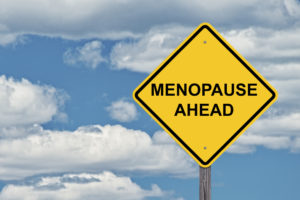
Are you experiencing irregular periods, hot flashes, night sweats, difficulty sleeping at night, mood swings and approaching your forties? You may be approaching perimenopause or menopause.
Menopause is a natural process that occurs when a woman stops having periods permanently and cannot become pregnant naturally. Perimenopause means ‘around menopause’ and indicates the time in which the body begins to make its natural transition into menopause.
Menopause usually occurs between 45-55 years old, however it can be earlier or later for some women, and similarly perimenopause can start at different ages according to your body’s composition. It is caused by a change and an imbalance in the rise and fall of hormones. Initially, cycles will decrease in length until they end permanently.
According to traditional Chinese medicine (TCM), the constitutional changes that occur during perimenopause and menopause are associated with kidney deficiency. The TCM viewpoint of menopause is that the kidney energy of the body is where our original energy is stored. As we age, the amount of kidney energy naturally decreases.
As the kidneys are responsible for growth, maturations, and aging, the declining kidney yin directly relates to the signs, symptoms, and complications of menopause. Yin is responsible for cooling, nourishing, and moistening to body and therefore a deficiency will ultimately lead to heat, dryness, and a lack of nourishment in the body, which leads to the symptoms of menopause. Along with kidney yin deficiency, there can also be a decline in kidney yang, kidney essence (jing), liver Qi stagnation and blood deficiency.
Acupuncture and Chinese medicine treatment looks for the pattern of disharmony that causes the imbalance of perimenopausal or menopausal symptoms. As perimenopause and menopause present differently in each woman, so no TCM treatment is alike. TCM practitioners can tailor a treatment specifically to your constitution to bring your energy and body back into alignment by working through the nervous system to help your body self-regulate.
Things you can do for perimenopause and menopause:
- Get enough rest. Ensure you are taking enough time to allow your body to rest and recover.
- Don’t miss out of exercising! It is very important for both your mind and body to keep moving and keep you balanced.
- Drink enough water. It is very easy to become dehydrated before you even realise or start to feel thirsty. It can lead to constipation, body aches, and drier skin and hair.
What not to do:
- Overworking. It can make your symptoms worse.
- Drink lots of alcohol. Alcohol can cause your cortisol levels to rise and can promote a restless sleep, making it difficult to fall back asleep once awake.
Menopause and perimenopause are times of transition that can be difficult at times, so it is important to adjust by paying attention to what throws you off balance. If you continue to push through and avoid the warning signs, you may end up stretched too thin emotionally and physically.
If you’re feeling like you need a little extra help, book in to see Michelle, Liah or Nick at the clinic.




